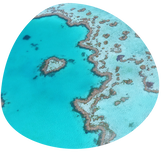Medication Administration Policy
Administering medication to a child is considered a high risk practice. Next Challenge adopts a ‘no involvement’ policy regarding the administration of medication.
Parents/caregivers of children accessing services from Next Challenge are responsible for the duty of care of their child.
Parents/caregivers are required to disclose any medication (prescribed or non-prescribed) that is required by the child, including details of when and how the medication is managed by the Parent/Caregiver.
It is recognised and agreed between parents/caregivers and staff at Next Challenge, that should any medication be required to be administered within a therapy session (based within the home, clinic or generic community, such as public spaces/parks), that this is the sole responsibility of the parent/caregiver.
It is recognised and agreed between parents/caregivers and staff at Next Challenge, that should medication be required to be administered within a therapy session (based within a school environment or day care centre), and when the parent/caregiver is not present, that this is the responsibility of the person in care of the child in this setting (eg. teacher, Teacher’s assistant, child care worker and so forth).
Definition of medication
Date of Policy: September 2015
Date review completed: February 2021
Due for review: February 2023
Parents/caregivers of children accessing services from Next Challenge are responsible for the duty of care of their child.
Parents/caregivers are required to disclose any medication (prescribed or non-prescribed) that is required by the child, including details of when and how the medication is managed by the Parent/Caregiver.
It is recognised and agreed between parents/caregivers and staff at Next Challenge, that should any medication be required to be administered within a therapy session (based within the home, clinic or generic community, such as public spaces/parks), that this is the sole responsibility of the parent/caregiver.
It is recognised and agreed between parents/caregivers and staff at Next Challenge, that should medication be required to be administered within a therapy session (based within a school environment or day care centre), and when the parent/caregiver is not present, that this is the responsibility of the person in care of the child in this setting (eg. teacher, Teacher’s assistant, child care worker and so forth).
Definition of medication
- The service has the opportunity to define ‘medication’ in the context of the policy. The term ‘medication’ can be defined either as prescribed or non-prescribed. For the purpose of this policy, ‘prescribed’ medication is:
- authorised by a health care professional
- dispensed by a pharmacist with a printed label, which includes the name of the child being prescribed the medication, the medication dosage and expiry date.
- Medication that does not meet the criteria for prescribed medication, can be considered non-prescribed. This includes over-the-counter medication; medication dispensed by a naturopath/homeopath; or considered complementary or alternative such as vitamins and cultural herbs or remedies.
- Examples of prescribed medication include antibiotics; Ventolin for asthma; or Ritalin for Attention-Deficit Hyperactivity Disorder.
- Examples of non-prescribed medication include topical or antifungal creams for nappy rash or eczema; paracetamol; ibuprofen; antihistamine for an allergy; or teething gel.
Date of Policy: September 2015
Date review completed: February 2021
Due for review: February 2023



